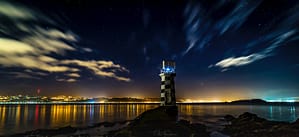Settlement in Wellington started as early as the 10th century when Kupe discovered and explored the city. European settlement commenced with the arrival of the ship Tory on 20 September 1839, which was followed by the Aurora on 22 January 1840. They constructed their homes at Petone at the mouth of the Hutt River. Wellington became the capital in 1865 replacing Auckland. Wellington’s position as capital was not bound by stature but by constitutional convention. In the year 1870, the Wellington City Corporation was formed following the disestablishment of the township’s Board of Works. The early 1880s brought in a New Zealand-wide economic depression that greatly affected Wellington. But with time Wellington fought the depression and came out stronger. The mid-1970s saw the City Council declaring all the older building to be brought down and meet the earthquake resistance standards as deemed fit by the Council. The last few decades saw the opening of the Michael Fowler Centre, the Te Papa museum, the Westpac Stadium and the production of the LOTR enterprise which brought great fame for Wellington. Wellington thrives being a traveller’s paradise and continues to enthral tourist and locals alike.
The capital of New Zealand, which is also known as the cultural capital is the home to Te Papa Tongarewa, the national museum of New Zealand. The Wellington’s museums are packed with national treasures which tell the stories of New Zealand’s past. The Te Papa has six stories of exhibitions showcasing aspects of the country’s diverse visual and art culture. The Museum of Wellington City and Sea tells the cultural history of Wellington. The Pataka celebrates New Zealand’s multicultural history showcasing the Maori, Asian, Pacific Island and international contemporary art and culture. The movie culture of Wellington provided the world with the Academy-Award winning The Lord of the Rings. A number of quaint, small museums around the city centre provides the perfect getaway for any tourist.
According to an estimate of 2015, Wellington has a population of 402,300. 44% of the people residing in Wellington profess no religious belief, with Christians being the largest religious group with 39% of the total population. According to the 2013 Census, 27% of Wellington’s population were born outside New Zealand, with the United Kingdom having the highest percentage of 7.1%. Other countries with a major population in Wellington include Samoa, India, China, Australia, the Philippines, South Africa, Fiji, the United States and Malaysia. People enjoy an outdoor lifestyle owing to the harbour side and the 425 hectares of bush-clad town belt.

